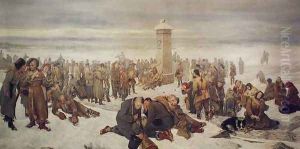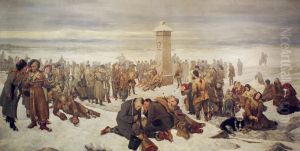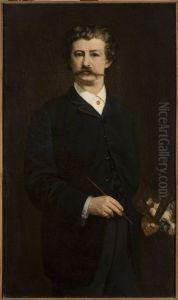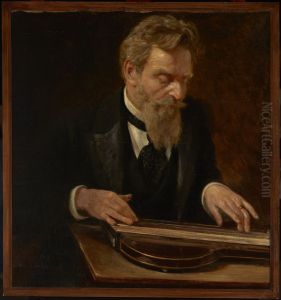Aleksander Sochaczewski Paintings
Aleksander Sochaczewski was a Polish painter born on November 29, 1843, in Głuchów near Łuków in what was then the Russian-controlled part of Poland. His artistic journey began at a young age, but his path to becoming a painter was tumultuous, intertwined with the historical events of his time.
Sochaczewski's life was marked by the January Uprising of 1863, a Polish insurrection against the Russian Empire. He participated in this failed attempt to regain Polish independence, which had a profound impact on his life and art. After the uprising's suppression, he was among the many insurgents sent to Siberia as punishment. During his years of exile (1864-1877), Sochaczewski painted numerous works depicting the harsh realities and emotional distress experienced by himself and his fellow Poles in Siberia.
Despite the adverse conditions, Sochaczewski continued to develop his artistic skills. His experiences in Siberia deeply influenced his future works, many of which centered around the themes of exile, longing for freedom, and the beauty of the Polish landscape, which he remembered from his youth and imagined while in exile. Upon his return to Poland after receiving amnesty, he settled in Warsaw and became a significant figure within the Polish art community.
Sochaczewski's works include a variety of genres, but he is best remembered for his historical paintings and scenes of Siberian exile. His most famous painting, 'Farewell to Europe,' poignantly captures the moment when Polish insurgents, including himself, left their homeland to face the unknown fate of Siberian exile.
Aleksander Sochaczewski's contribution to Polish art is characterized by his personal narrative that resonates with the broader national history of Poland. His paintings are not only artistic expressions but also historical documents that offer insight into the period's social and political struggles. Sochaczewski's works are preserved in various Polish museums and continue to be studied for their historical and cultural significance. He passed away on February 25, 1923, in Warsaw, leaving behind a poignant legacy that still speaks to the themes of national identity, sacrifice, and resilience.




